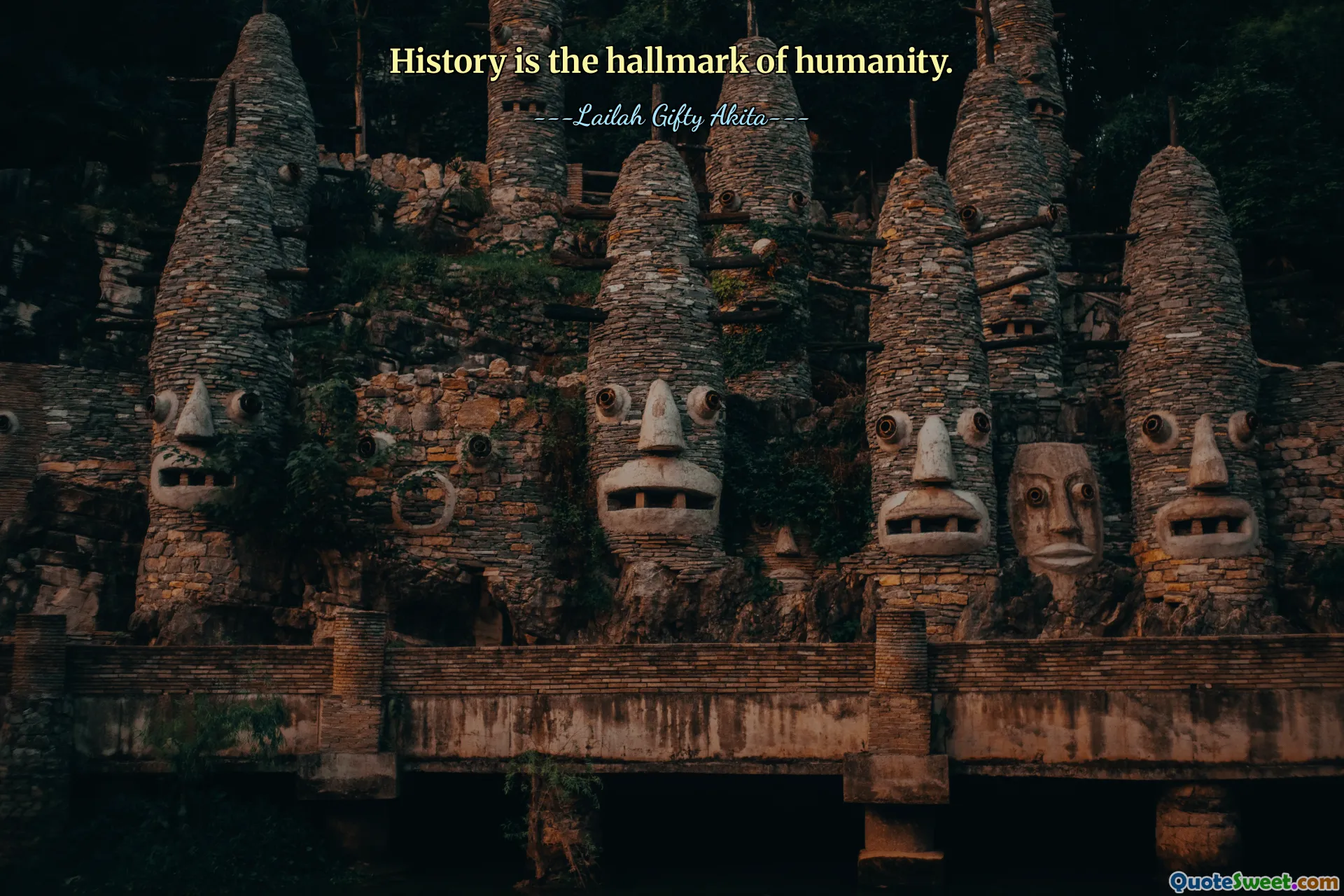
History is the hallmark of humanity.
History serves as the reflection of our collective human experience, capturing the triumphs, struggles, failures, and lessons learned through the ages. It is through the study of history that we come to understand the evolution of societies, cultures, and ideas, which in turn informs our present and guides our future. Recognizing history as a hallmark emphasizes its role as a distinguishing feature that sets mankind apart from other species, highlighting our unique capacity to document, analyze, and learn from past events. The preservation of history acts as a moral compass, reminding us of the consequences of actions and the importance of progress grounded in awareness. It also fosters a sense of identity and continuity, linking generations and creating a shared narrative that binds communities together. Moreover, history's role extends beyond mere storytelling; it is a tool for critical thinking and reasoning, encouraging us to question, analyze, and interpret complex situations. This ongoing process of learning from history can prevent the repetition of past mistakes and inspire innovative solutions rooted in tried-and-tested principles. In a rapidly changing world, where new technologies and ideas emerge constantly, the value of history becomes even more pronounced as a stabilizing force and a source of wisdom. Ultimately, history is not just about recording facts; it is about understanding what it means to be human. It captures the essence of our existence, both its grandeur and its flaws, lending depth and perspective to our shared journey as a species. Therefore, acknowledging history as a hallmark of humanity underscores its vital role in shaping a conscious, informed, and compassionate society.











